Morocco Fair-trade practices
by
Artossi Contact
05 Jan 2024
Ethical sourcing and supporting local artisans through fair-trade practices are becoming major motivators for conscious consumers when choosing Moroccan products. It's fantastic that you're interested in this aspect, as it can significantly impact the lives of communities and empower artisans.
Here's a deeper dive into fair-trade practices in Morocco:
Initiatives and Organizations:
- WFTO (World Fair Trade Organization): WFTO-certified cooperatives in Morocco offer a guarantee of fair wages, safe working conditions, and transparent operations. Look for the WFTO logo on products.
- Hand-in-Hand Morocco: This organization promotes economic development through fair-trade partnerships with Moroccan cooperatives.
Benefits of Fair-Trade:
- Sustainable livelihoods: Fair-trade ensures artisans receive fair prices for their work, enabling them to invest in their families and communities.
- Preserving traditions: It encourages the continuation of traditional craft skills and cultural heritage.
- Empowering women: Many Moroccan cooperatives are women-led, and fair-trade practices provide crucial economic opportunities for female artisans.
- Environmental consciousness: Some cooperatives also adopt eco-friendly practices, like using sustainable materials and minimizing waste.
Finding Fair-Trade Products:
- Look for certifications: WFTO, Fairtrade International, and Hand-in-Hand Morocco logos are reliable indicators.
- Visit artisan cooperatives: Immerse yourself in the production process and connect directly with the makers.
- Ask retailers: Inquire about the sourcing practices of their Moroccan products.
- Shop online: mypoufs website offers curated collections of fair-trade Moroccan products.
Remember: By choosing fair-trade products, you're not just purchasing an item, you're contributing to a positive change in Moroccan communities. You're supporting economic empowerment, cultural preservation, and a more sustainable future for artisans and their families.
Sample Block Quote
Praesent vestibulum congue tellus at fringilla. Curabitur vitae semper sem, eu convallis est. Cras felis nunc commodo eu convallis vitae interdum non nisl. Maecenas ac est sit amet augue pharetra convallis.
Sample Paragraph Text
Praesent vestibulum congue tellus at fringilla. Curabitur vitae semper sem, eu convallis est. Cras felis nunc commodo eu convallis vitae interdum non nisl. Maecenas ac est sit amet augue pharetra convallis nec danos dui. Cras suscipit quam et turpis eleifend vitae malesuada magna congue. Damus id ullamcorper neque. Sed vitae mi a mi pretium aliquet ac sed elitos. Pellentesque nulla eros accumsan quis justo at tincidunt lobortis deli denimes, suspendisse vestibulum lectus in lectus volutpate.

